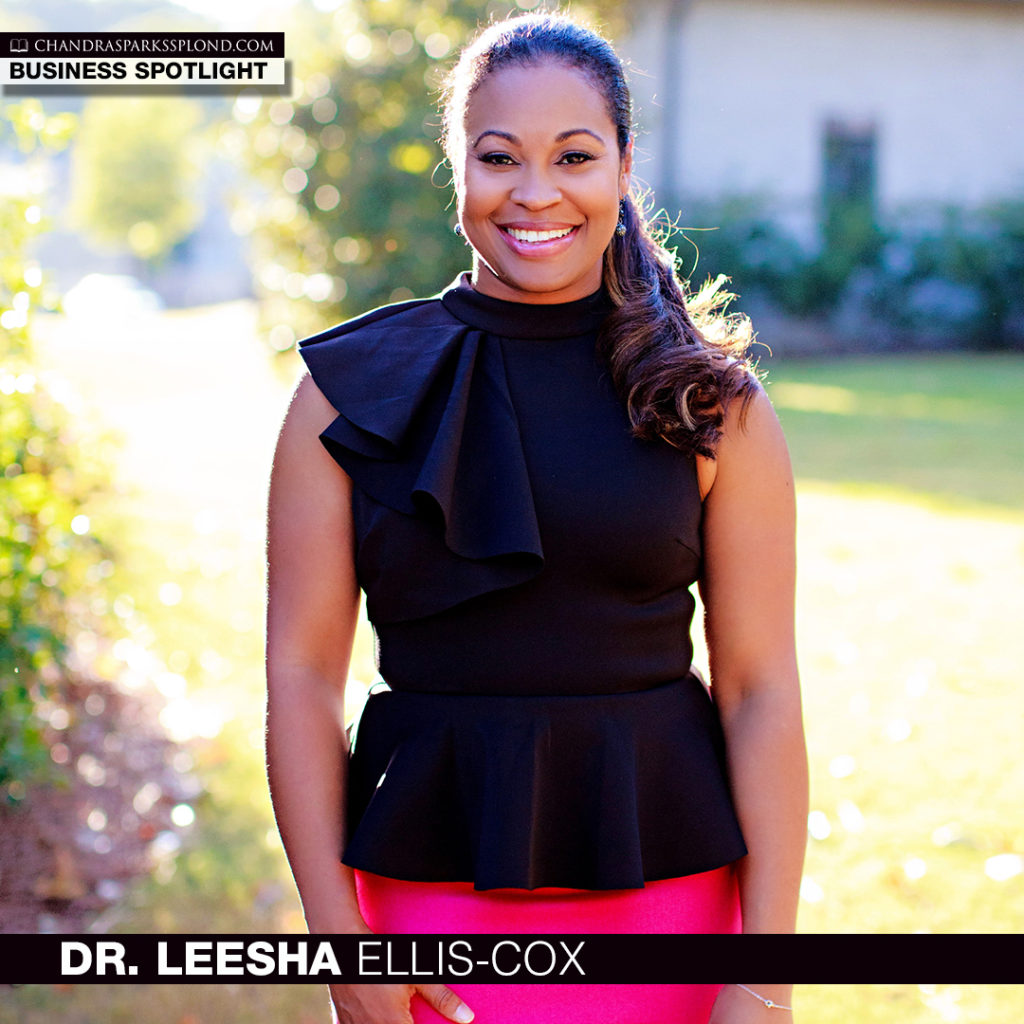
Dr. Leesha Ellis-Cox wants you to know there is no shame in seeking help for your mental health, and I’m honored to have her stop by the blog today to offer you some valuable information to equip you with the tools you need to make informed decisions.
Tell me about your practice.
I first came to Western Mental Health Center, Inc., a community mental health center located in west Birmingham, in 2014 to provide psychiatric care to children and adolescents. In the fall of 2015, I became the medical director. In this capacity, I oversee the provision of outpatient psychiatric services to our clients and treat both youth and adults with serious mental illness. Similar to county health departments, community mental health centers are a vital component of our state’s public sector health care system as we are tasked to care for the uninsured and individuals covered by Medicaid and Medicare who might otherwise have nowhere to go to receive specialty mental health services. We offer psychiatric evaluations, medication management, and counseling services.
My decision to start my own mental health consulting firm, eponymously named Dr. Leesha M. Ellis-Cox, MD, MPH, LLC, was borne out of a desire to demystify mental illness and reduce stigma. Through my company, I strive to work with individuals and organizations (academic institutions, faith-based organizations, community and advocacy groups) to encourage, empower, and educate them about mental health and mental illness so that they will be able to recognize the signs and symptoms of burgeoning mental illness and know how to help themselves or others access care so they can ultimately live a balanced life—a life harmoniously integrating mind, body, and spirit.
Why did you decide to become a psychiatrist?
From an early age, I developed a tremendous interest in science. I dreamed of becoming a famous oceanographer like Jacques Cousteau, which then switched to a paleontologist, digging up fossils, or archaeologist, uncovering deeply buried treasures; but, it was my childhood pediatrician, Dr. Burroughs, who first piqued my interest in medicine. He was very intelligent but also approachable and compassionate, and over the years that he cared for me, I became increasingly curious about the work he was doing. When I initially started medical school, I planned to become a pediatrician and specialize in adolescent medicine, but my psychiatry rotation opened my eyes to the devastating effects of untreated depression and anxiety. It was then that I realized that my desire was to help those struggling with mental illness and especially because many of those that I treated were people of color, riddled with shame and fear at the prospect of being deemed “crazy” because they were seeking psychiatric care. I also truly believe that is important for people of color to see health care providers who look like them as health disparities continue to persist despite significant advances in health care.
What can patients expect when they select you as their doctor?
When you choose me as your psychiatrist, you receive care from a physician who is very well-trained, bright, engaging, and compassionate—a physician who desires to forge a partnership, mutual trust, respect, and open lines of communication. I consider your whole life—your physical health and co-morbid medical conditions, your past, your dreams and aspirations, your faith, your family and supports—everything that encompasses who you are and how you function. You get much of the same when your organization chooses to hire me as a presenter at your workshop or the keynote speaker for your conference.
What should people look for when selecting a psychiatrist?
When selecting a psychiatrist, there are a few key considerations.
a. Is this psychiatrist covered by your insurance—Most people obtain recommendations from friends, family, and other medical providers when finding a specialist; but, health care can be expensive, especially if the physician is out of network. As such, it is prudent to determine if a particular psychiatrist is covered by your insurance and, if not, what your out-of-pocket costs will be.
b. Philosophy of the psychiatrist—Psychiatrists are trained to provide talk therapy services (psychotherapy) as well as medication management. However, many psychiatrists only provide medication management and little psychotherapy so you need to ensure that the psychiatrist you select provides the services you want or at least is willing to refer you to someone else for those services. Also, make sure you feel comfortable disclosing the sometimes difficult information with your psychiatrist although rapport, trust, and the therapeutic alliance that forms between a physician and patient typically develops over a couple of visits.
c. Specialty areas—Many psychiatrists have sub-specialty training or narrow treatment interests. If you are looking for treatment for children, find a psychiatrist who has completed training in child and adolescent psychiatrist. If you have a mood disorder or a trauma history, you will want to select a psychiatrist with an interest in these treatment areas.
d. Rapport—Sharing your past hurts and current struggles can be difficult, particularly when disclosing these details to a complete stranger. It is thus very important to find a psychiatrist who is not only well-trained but is honest, trustworthy, respectful, and willing to engage in a candid dialogue with you about your concerns and your goals balanced by his or her clinical expertise. It is hard to heal emotionally if you cannot be open and honest with your psychiatrist, fearful that he or she will dismiss your concerns or make medical decisions without your input.
What’s the difference between being a psychiatrist, therapist and counselor?
Many people are unclear how a psychiatrist, psychologist, therapist, and counselor differ. My descriptions are adapted from WebMD at http://www.webmd.com/mental-health/guide-to-psychiatry-and-counseling#1)
a. Psychiatrist – a medical doctor (physician) who specializes in the prevention, diagnosis, and treatment of mental illness; differentiates mental illnesses from underlying medical conditions but also recognizes and addresses the overlap that often exists between the two and can provide therapy and prescribe medications for mental diseases
b. Psychologist – a licensed individual who has obtained a doctoral degree in psychology (PhD, PsyD, or EdD) who can provide an array of services including, but not limited to, therapy, psychological testing, teaching at academic institutions, and conducting research; with the exception of a few states, psychologists are unable to prescribe medications or perform medical procedures
c. Counselor – a broad term that encompasses individuals who provide counseling/therapy services (terms used interchangeably), counselors can include licensed clinical social worker, license professional counselor, masters level psychologist, or even a life coach; there is no formally defined educational curriculum or specific licensing body for a “counselor” but rather these requirements are discipline-specific
d. Therapist – term that typically refers to discipline-specific (and often state-licensed) providers who treat individuals, couples, and/or groups exhibiting signs and symptoms of emotional or psychological duress.
How do you juggle being a doctor and a momma?
Those who know me well have heard me say that I believe two of the most important, and at times challenging, things I will ever do in my life are to stay married to my wonderful husband and raise my 3 precious children. Juggling the role of wife, mother, medical director and psychiatrist, and budding entrepreneur is no small task. As my husband and I are both from North Carolina and have no family in Alabama, it takes serious scheduling coordination and a fantastic nanny to manage drop off and pick up, appointments, and extracurricular activities. To preserve my mental health, I practice prayer, exercise though this is a struggle for me, date nights with the hubby, girls’ night out, family fun days, and just some plain old me time, which these days often means running to Target with not one single kid in tow!
What’s next for you and your practice?
Right now, I am working diligently to grow my consulting business and hoping to secure a number of public speaking engagements in 2017 and beyond. I am also honing my writing skills as I have a few children’s books in the works. Furthermore, I am brainstorming to come up with creative strategies to increase awareness, stimulate fruitful conversations, and destigmatize mental health in my community, strategies that will only work by forging partnerships with community leaders, agencies, health care organizations, and other key players.
Is there anything you would like to add?
In 2017, my earnest desire is to be a catalyst for positive change and growth in the lives of many!
Learn more about Dr. Leesha Ellis-Cox at www.drleesha.com or email her at hello@drleesha.com if you wish to book her for your next event or contact her at Western Mental Health Center, Inc., located at 1701 Avenue D, Ensley, Birmingham, AL 35218 or 205-788.-770 if you are seeking mental health services.




